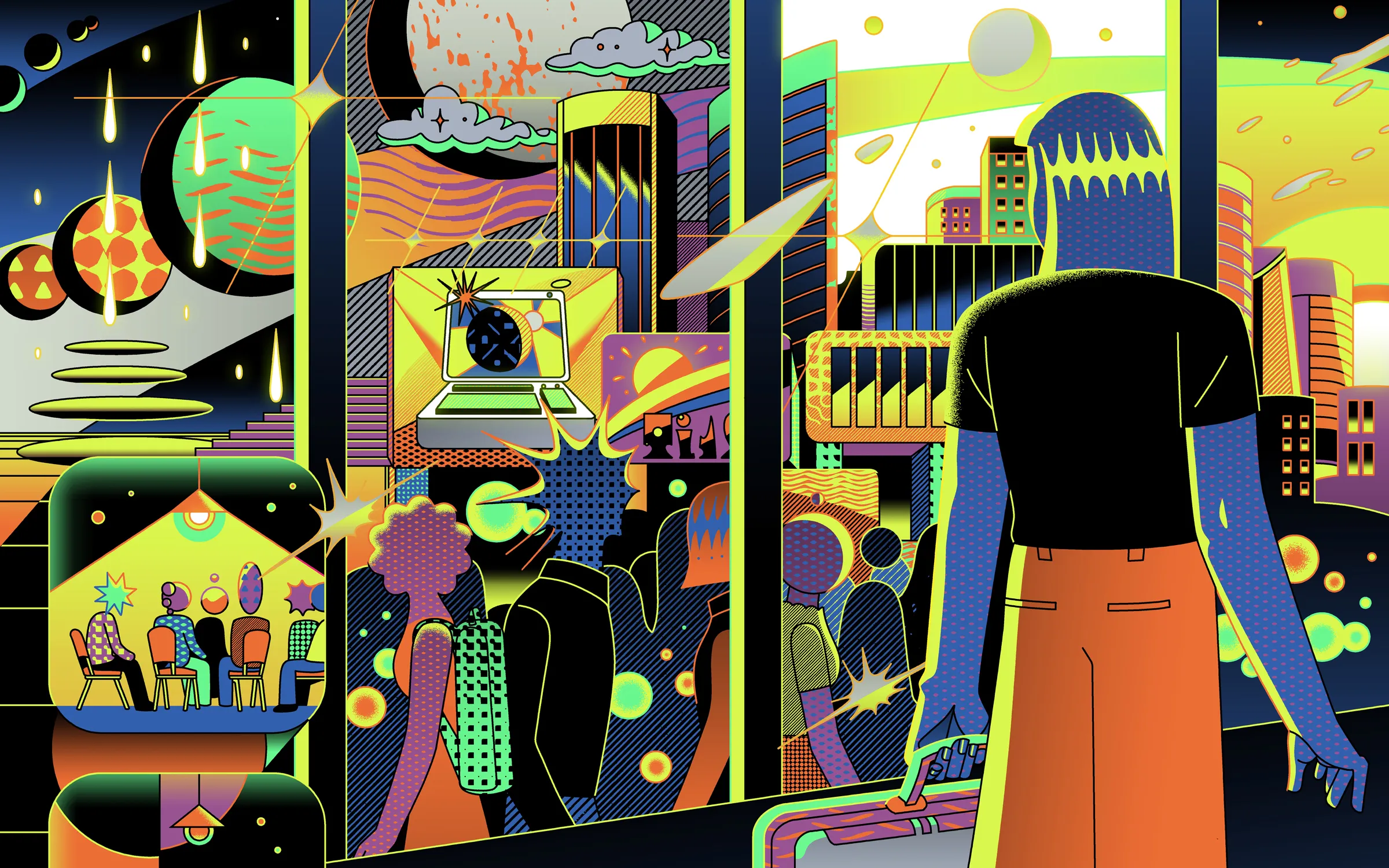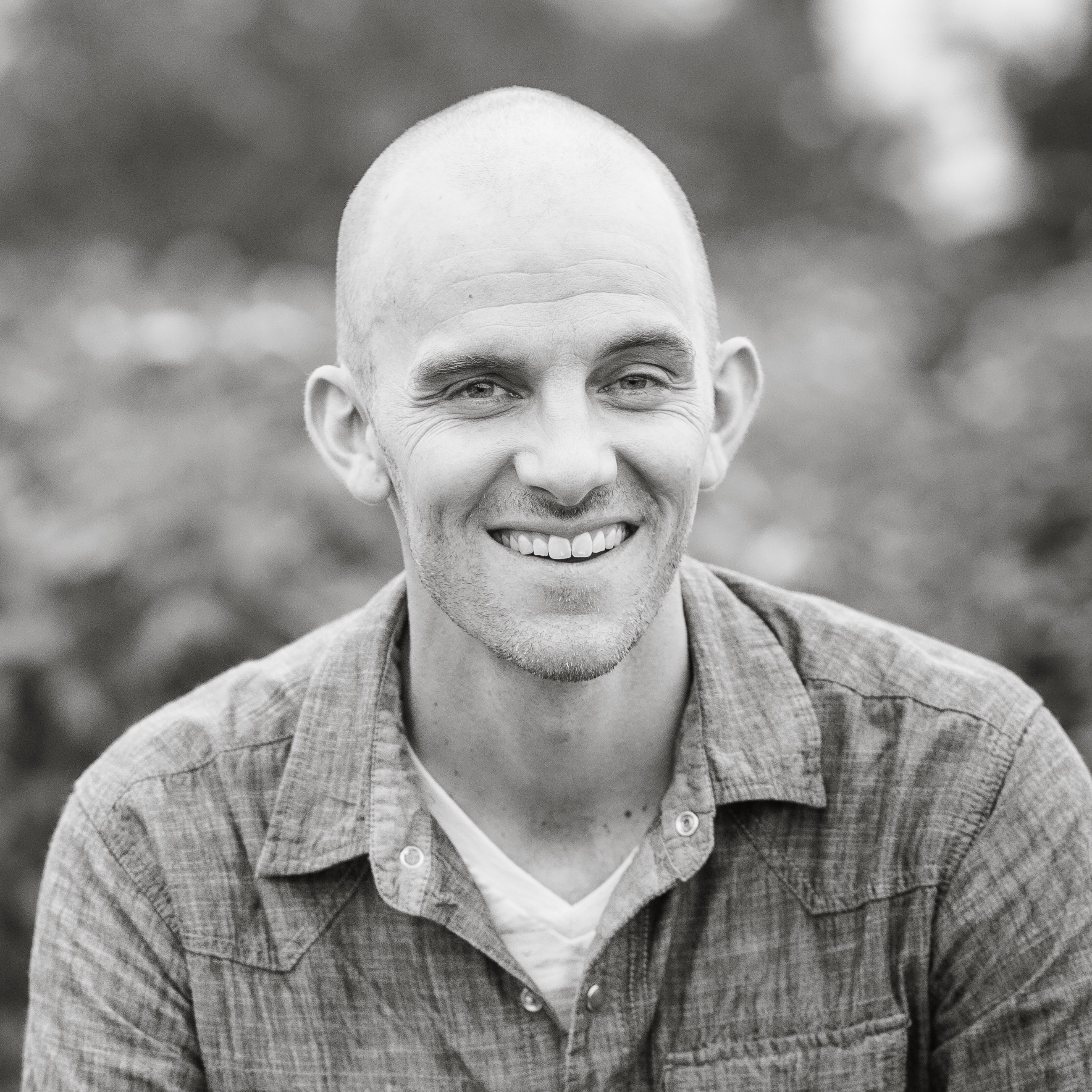Choice is powerful. One of my favorite quotes about choice comes from the Austrian neurologist and psychologist Viktor Frankl. In his book Man’s Search for Meaning, he writes:
Everything can be taken from a man but one thing: the last of the human freedoms—to choose one’s attitude in any given set of circumstances, to choose one’s own way.
The realization that we always have a choice as to how we will respond to those things going on around us, even if we can’t control them, is an empowering one. Frankl should know. As a Holocaust survivor, he faced unimaginable horrors, yet never forgot his power to choose. When everything was stripped away from him, he held to that power closely.
Frankl addresses choice in terms of how we respond to circumstances beyond our control, when our freedom has been reduced to a minimum. But what about choice in terms of the many circumstances within our power to control, when freedom abounds? I think we tend to view a choice like this:

As in the old Robert Frost poem, we consider the two roads diverging before us in the woods, and try our best to choose which one we’ll travel upon. In her book Transformative Experiences, philosopher LA Paul suggests a different way of looking at choice. She asks us to imagine having to choose whether or not we’d like to become a vampire, gaining immortality with the caveat of not having to hurt anyone. It’s a thought experiment that gets to the heart of Plato’s question, “How will you go about finding that thing the nature of which is totally unknown to you?” She writes:
When you find yourself facing a decision involving a new experience that is unlike any other experience you’ve had before, you can find yourself in a special sort of epistemic situation. In this sort of situation, you know very little about your possible future, in the same way that you are limited when you face a possible future as a vampire. And so, if you want to make the decision by thinking about what your lived experience would be like if you decided to undergo the experience, you have a problem… You find yourself facing a decision where you lack the information you need to make the decision the way you naturally want to make it—by assessing what the different possibilities would be like and choosing between them. The problem is pressing, because many of life’s big personal decisions are like this: they involve the choice to undergo a dramatically new experience that will change your life in important ways, and an essential part of your deliberation concerns what your future life will be like if you decide to undergo the change. But as it turns out, like the choice to become a vampire, many of these big decisions involve choices to have experiences that teach us things we cannot know about from any other source but the experience itself.
So our choice might be better viewed in the following way:

“A” represents the space that is completely familiar to us, while “B” represents the space that is completely foreign to us. It’s the known versus the unknown. We only know ourselves on the “A” side of a decision. There’s no real way of knowing who we’d become if we made the choice to leave “A” behind, cross through the doorway, and enter into “B.”
This is the problem we face when making big decisions. We are biased toward our current experience in life. Going through that door and entering the unknown is often very scary, because both our experiences and who we will become are unknown. In her contemplation of the vampire problem, Maria Popova writes:
We are simply incapable of imagining ourselves on the other side of a profound change, because the present self doing the imagining is the very self that needs to have died in order for the future self being imagined to emerge.
When we choose to enter these unknown spaces, in a way, we choose to let our former self die in order for a transformed self to emerge. In her book A Field Guide to Getting Lost, Rebecca Solnit describes the value of such transformation and the process by which we can obtain it:
The things we want are transformative, and we don’t know or only think we know what is on the other side of that transformation. Love, wisdom, grace, inspiration—how do you go about finding these things that are in some ways about extending the boundaries of the self into unknown territory, about becoming someone else?
Extending the boundaries of self and becoming someone else is a difficult process. It’s far easier to stay within our comfort zone. Stepping into the great unknown is exhilarating, but it has its costs. Viktor Frankl looked at the problem of restricted freedom—when the door to possibility is closed. Unlimited freedom to open whichever door one chooses can also be problematic. There’s a reason Danish philosopher Søren Kierkegaard described anxiety as the “dizziness of freedom.” Looking through that open door into the abyss of the unknown can be destabilizing.
But in life, moving into the unknown is often what’s required of us, and it’s often where we should go. In The Meaning of Anxiety, psychologist Rollo May expands on Kierkegaard’s thoughts about anxiety:
Because it is possible to create—creating one’s self, willing to be one’s self, as well as creating in all the innumerable daily activities (and these are two phases of the same process)—one has anxiety. One would have no anxiety if there were no possibility whatever. Now creating, actualizing one’s possibilities, always involves negative as well as positive aspects. It always involves destroying the status quo, destroying old patterns within oneself, progressively destroying what one has clung to from childhood on, and creating new and original forms and ways of living. If one does not do this, one is refusing to grow, refusing to avail himself of his possibilities; one is shirking his responsibility to himself.
In any big decision, the choice we make leads us toward gaining something and losing something else. I think that much is a given. And it’s something I can accept. For me, the important thing is to keep choosing to grow. Growing is how I can create hope in a world that often seems at the brink of losing itself. It’s like what Emerson once wrote: “People wish to be settled; only as far as they are unsettled is there any hope for them.” I think it’s also important to remember that making small choices can also be unsettling, and if made consistently over time, can lead to big changes in a person’s character and experience of the world. Ted Chiang’s short story “Anxiety Is the Dizziness of Freedom,” from his book Exhalation, dives into this idea beautifully.
But even though we can’t know what’s on the other side of a big decision, I like Walt Whitman’s take in “Song of Myself” (43), on how we can enter those unknown spaces with confidence:
I do not know what is untried and afterward,
But I know it will in its turn prove sufficient, and cannot fail.
It helps to look back into your past as you enter those untried future spaces. The past can provide some finite concreteness that stabilizes you from the infinite possibilities of the future. You’ve faced trials before and prevailed. You will prevail again.


